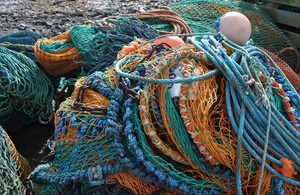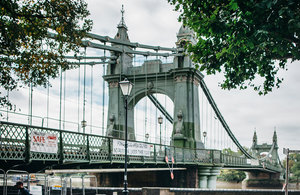- New rules announced on campaigning will ensure free and fair local elections
- One-to-one campaigning outdoors will be allowed from 8 March, such as leafleting and canvassing
- Constitution Minister urges “social responsibility” from political parties and individual activists
Individual activists will be able to campaign outdoors in a COVID-secure way from 8 March, ahead of the English local elections in May.
New government guidance published today will enable free and fair elections, striking the necessary balance to protect public health and ensure voters can make informed choices.
From 8 March, rules will allow for individual campaigners to deliver leaflets and to engage with electors on their doorsteps – but they should always be socially distanced and not enter inside people’s homes.
Outdoor activity remains prohibited until this point and it is vital the current national lockdown rules continue to be followed.
Constitution Minister, Chloe Smith, said:
Democracy should not be cancelled because of COVID. Voters appreciate being well-informed and campaigning is an important part of effective elections.
The guidance I have set out today can give voters and candidates confidence that free and fair elections can be delivered on 6 May and, most crucially, in a COVID-Secure way.
I urge political campaigners to continue to show social responsibility, and for parties, agents and candidates to ensure that their campaigners understand the clear rules.
The new rules from 8 March provide for two months of broader campaign activity in the run up to May’s polls. This proportionate approach will ensure that campaigning can be undertaken during the ‘regulated’ campaign period and also for a period of time before the election expenses restrictions commence.
Campaigners should ensure that all necessary mitigations are applied including social distancing, sanitising hands and wearing face coverings.
From 29 March, the planned provision for six people or two households to meet outdoors will support further outside campaigning, such as activists campaigning in a group along a local street.
The Parliamentary Parties Panel and Local Government Association independents group was consulted on today’s guidance prior to publication, in order to take into account the views of political parties and the interests of independent candidates. It is one of a number of measures the government is putting in place to support the delivery of COVID-secure and effective elections.
Additional guidance and legislation has been introduced which reduces the number of signatures required to validate a candidate’s nomination. This temporary change will limit the need for in-person contact in March (when nominations must be completed). This week, the Government also published draft legislation that will enable voters who have tested positive for COVID-19, or are self-isolating, to apply for an emergency proxy vote at short notice before election day – so that they can still have their say without having to leave their home. The public can continue to apply to vote by post.


